Chance, Intelligence, and Humor: An Interview with Gianluigi Buffon
Between two sticks
Mariana Castillo Deball and Gianluigi Buffon
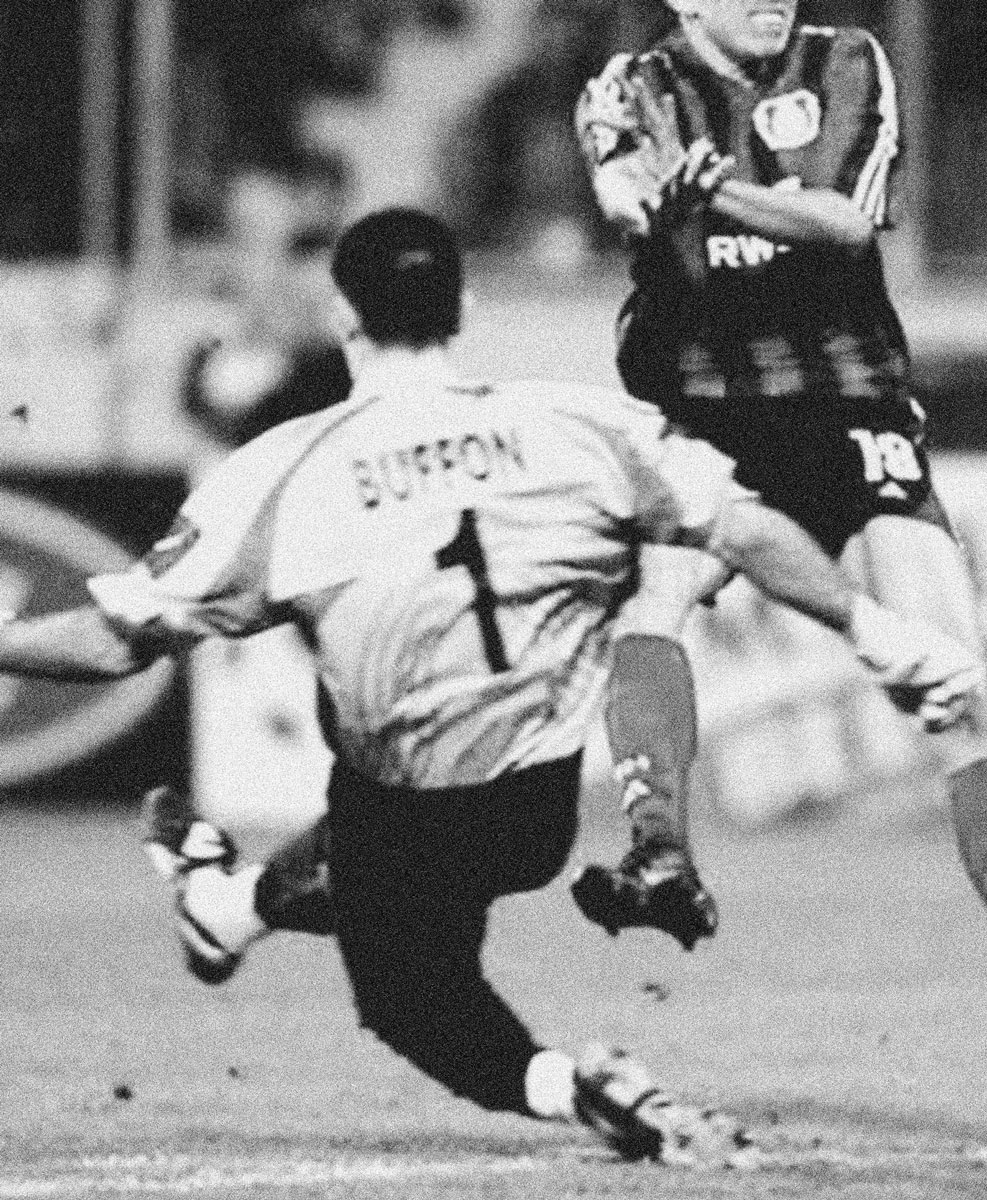
Gigi Buffon is an original. His raw talent rocketed him into the number 1 shirt on both Parma FC and Italy’s national football team, while his personality is characterized by outspoken and enigmatic statements to the press, his fearlessness on the field, and the seemingly suicidal maneuvers that smother the ball at the feet of onrushing players.
Buffon was born in Carrara, Italy, into an athletic family. His mother, Maria Stella, was a discus thrower; his father, Adriano, a weight lifter. His two sisters play volleyball and his uncle was a basketball player. He is the nephew of former Milan and Italy goalkeeper, Lorenzo Buffon. Growing up, Buffon began his career as a midfielder but decided to change his position to goalie after he lost the will to run. This proved to be a a stroke of good luck for the game, as Buffon is now perhaps the greatest goalkeeper in the world.
Mariana Castillo Deball: How did you start as a goalkeeper?
Gianluigi Buffon: I entered my present profession by accident—a series of geographical, personal, and legal coincidences. A blend of boredom, curiosity, and vanity.
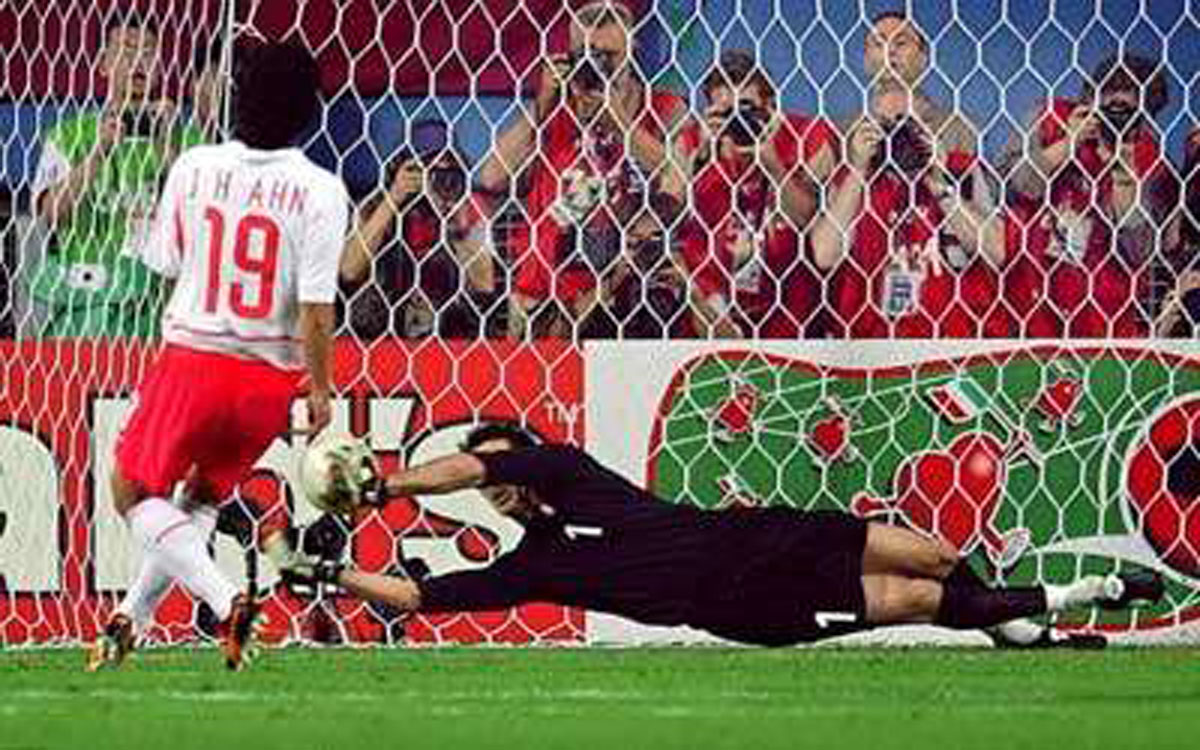
Do you regard football as a pastime or as your primary obsession?
You know, the grass is always greener elsewhere. I have an immense curiosity about everything. My interests vary widely and I have the feeling that I will never answer all the questions that life poses. When I get very obsessed by something, I realize immediately that what interests me is something else entirely or, rather, not anything precise but everything that does not fit into what I’d already considered ... the relationship between one thing and all its possible variants and alternatives ... everything that can happen in time and space. My approach to knowledge is playful. I am a Jack-of-all-trades, master of none. If I chose a particular discipline the charm would be gone, because choosing one means dismissing the others. Foremost, I respect my ignorance, otherwise it would be impossible to maintain my sense of humor. For me, intelligence is always linked to irony, otherwise it becomes monotonous and boring. In order to solve this dilemma, I tried to limit the possibilities, to find an activity in which I could keep the amusement, the pleasure, but within very specific rules so that I wouldn’t get lost and distracted by everything. By choosing football, I killed two birds with one stone. I never really learned how to play, I just started playing as a child in the streets; I know nothing about formal technique. In football, my thoughts, my opinions, are not immediately visible; they are made evident through gestures, reactions, and reflexes. They depend as well on a very specific situation that I need to relate to at that particular moment; there is no time for hesitation. In the end, every game is a game with language, so I am just taking my mental activity to the most abstract and absurd level.
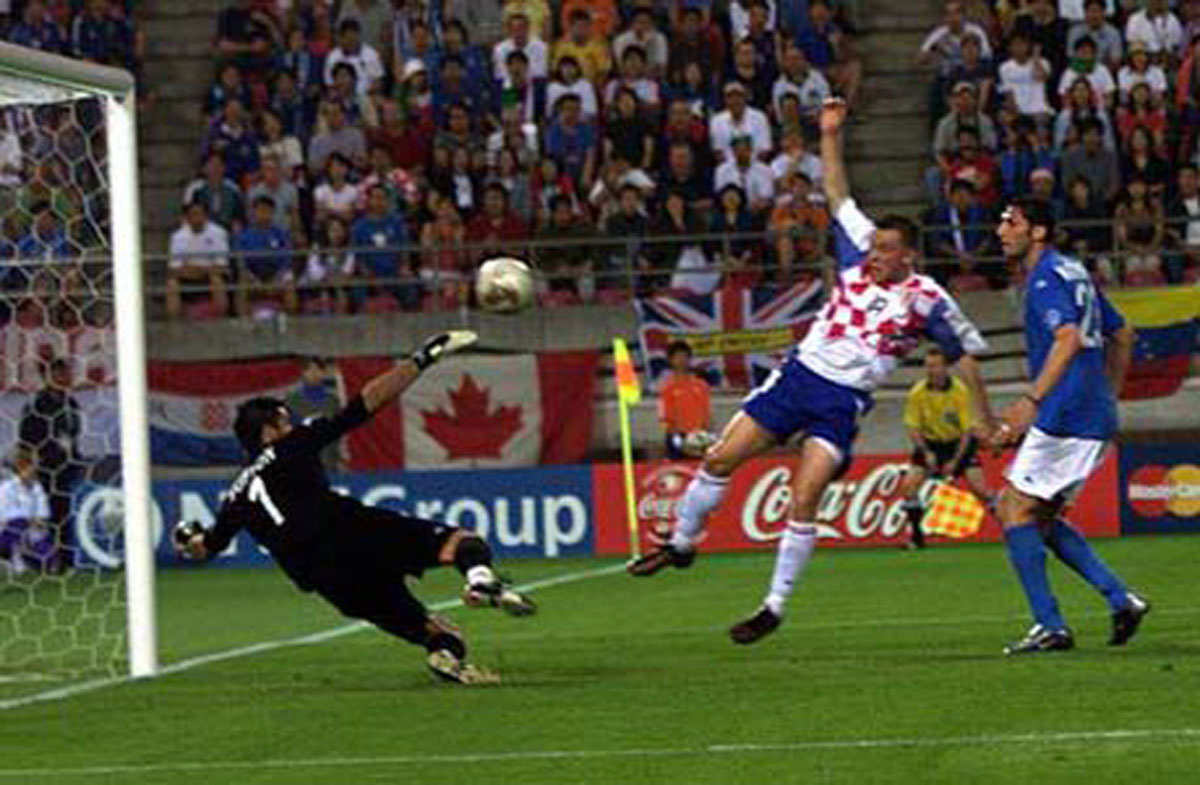
Who is the audience for you?
On the one hand, an audience’s behavior is always predictable: they scream, sing, throw objects, but you never know what exactly will happen or the degree of intensity; it’s like a mountain of sand, made of an infinite number of particles. Quite spontaneously, these systems reach a critical state. If you drop grains of sand one by one into a pile, they build up and up into a cone until an avalanche starts. The slope of the side of the cone settles down to a critical value, at which point it undergoes small avalanches and big avalanches (and avalanches at every scale in between). This behavior is independent of the size and the shape of the sand grains, and in general it is impossible to deduce anything about the building from its behavior. In other words, the scale and timing of the avalanches don’t depend on the size or shape of the sand grains.
The spectators of a football game can have diverse characters or qualities and be spread out in different spaces, countries, and situations. Some people go to the stadium, but in general they watch the match on television or listen to the radio or read the newspaper. In this sense, the audience is not fixed in space or time. It also depends on the distribution of the information, whether it’s live at the stadium, or on TV where the story has already been transformed by the camera work, editing, and the narration of the sports commentators who explain the movement of the game. I have always been very curious about this real-time narration, made up of a sequence of names and numbers, directions, strategies, predictions. It has a specific vocabulary and rhythm, very technical but, also full of prefabricated remarks, and stocked with players’ nicknames, deliberate descriptions, and quips.
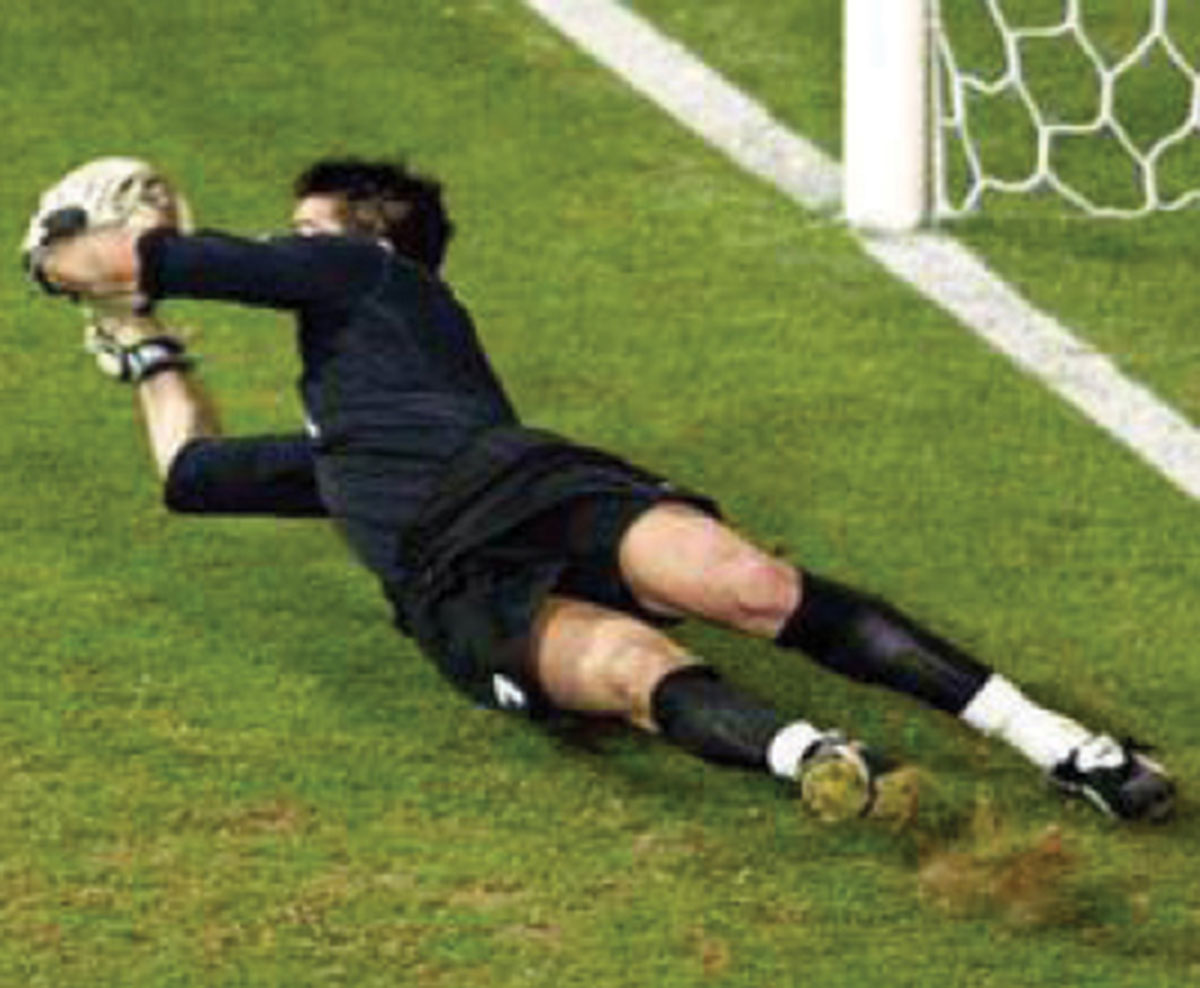
What do you think about the media’s reception of your activity?
I am responsible for intercepting the ball at a crucial moment; I can only succeed or fail in my attempt. The records of my actions are minimal—repetitions of the climactic moments, whether they are mistakes or achievements. I have the idea that although a man’s life is compounded of thousands and thousands of moments and days, those many instants and days can be reduced to a single one. So my single image in the media is precisely about the moments when I try to stop the ball. They are all stills of instantaneous decisions. At the end of the day, it’s a collection of images where I always appear in midair—flying. I like it that the entire record of my life is of it occurring in the air.
I am amazed that I can watch an image of myself at the precise moment when I am trying to catch the ball. I am catching the ball and the media is trying to catch my image; the difference is that they are bombarding me with their cameras and I have a single chance. They will always capture me; I can always fail. Later, the same instant is broadcast from different angles at different speeds: slow motion, still, backward and forward. Speech also supports the image; they talk about my career, my common mistakes and virtues, all the statistics around my movements, how many balls I stopped in my life, how many I’ve let through.
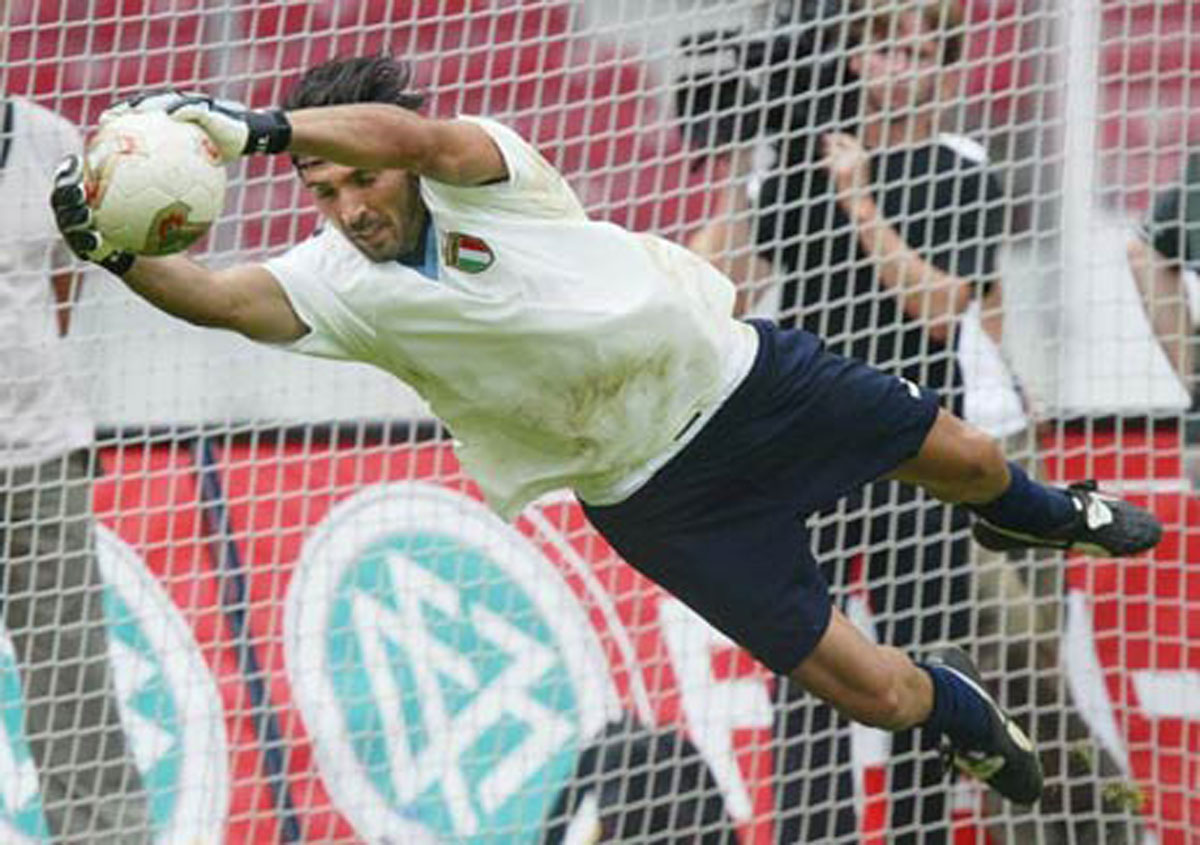
Why do you think football is so popular?
Football is about enchantment. For an hour and a half, the world stops because a ball is being chased and a different kind of time unfolds, capturing the concentration of the players and the audience and generating its own story. One player or another is praised or blamed, bets are placed. Afterwards, the world is normal again and the spell evaporates. The game’s interest lies not in the plot but in the shifts, in the changes in the many micro-plots. I’m reminded of Fastrada’s ring story. You know the story? The one where the Emperor Charlemagne falls in love with Fastrada. The barons are in his court, extremely worried because they see that Charlemagne is neglecting the affairs of state. When the girl suddenly dies, the courtiers feel relieved—but not for long because Charlemagne’s love does not die with her. The Emperor carries her body to his bedroom, where he refuses to part from it. The Archbishop Turpin suspects an enchantment and insists on examining the corpse. Hidden under the dead girl’s tongue he finds a ring. As soon as the ring touches Turpin’s hands, Charlemagne falls passionately in love with the archbishop and quickly has the girl buried. In order to escape the embarrassing situation, Turpin flings the ring into lake Constance. Charlemagne thereupon falls in love with the lake and never leaves its shores.
The real protagonist of the story is the magic ring, because it is the movement of the ring that determines the actions of the characters and establishes the relationships between them. Around the magic object there is a kind of force field, which is the territory of the story itself. We might say that the magic object is a visible sign that describes the connection between people or events.
For me, the ball plays the role of this magic object in that for a short period, a group of people are pursuing it and millions of viewers are following its route.
Maybe it’s stupid to put it this way, but it’s like a moving compass. I remember when I was a child we did an experiment at school in which we built our own compass, affixing a cork with a magnetized needle. If you float it in a bowl of water and wait until it’s still, the needle will work as a compass, pointing north. The problem is that the needle is hardly still and its accuracy is very fragile and sensitive to the smallest movement. I like the idea of this improvised and fragile object that nevertheless maintains a rule.
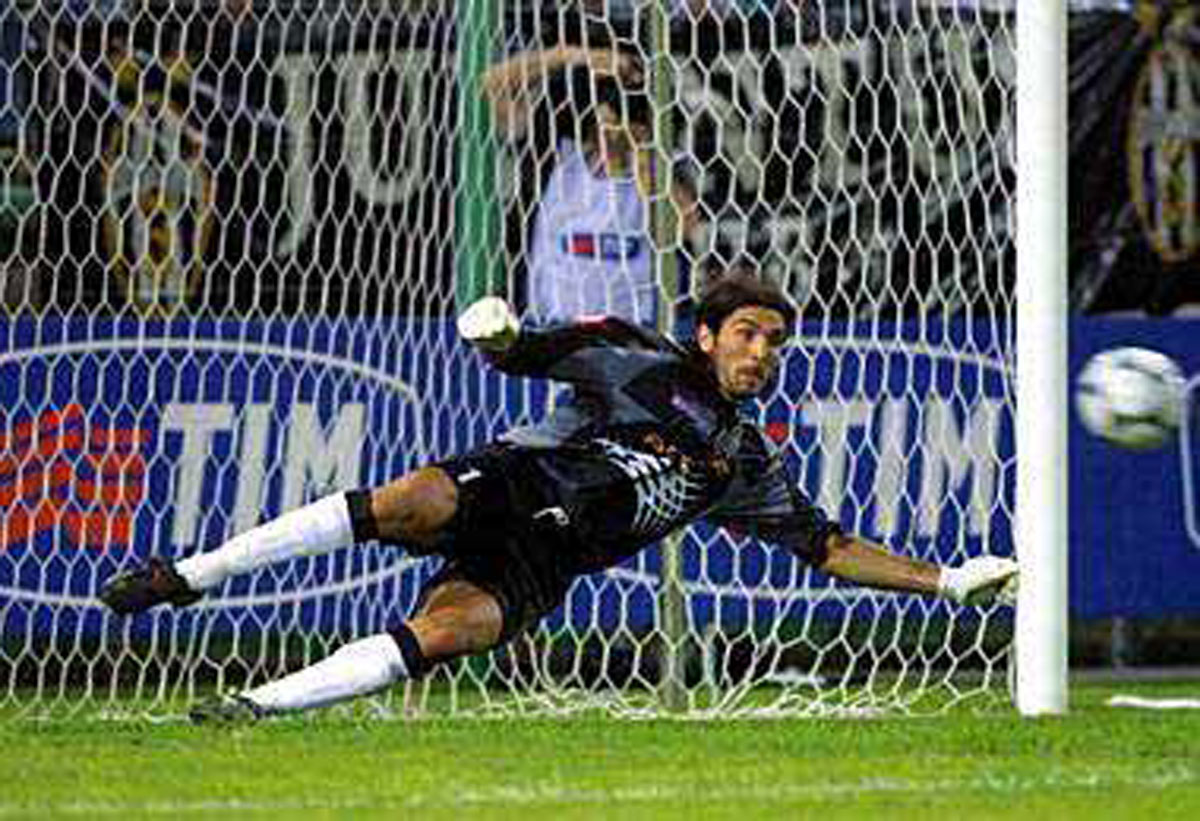
Many people talk about football as a circus, and I find it curious that your name—Buffon—means “clown” or “joker.” What do you think about this strange coincidence?
I like to think that I am a buffoon, a clown, entrusted with the task of entertaining people, playing a very stupid role. I’m often blamed for playing dirty tricks, like if I suddenly start kicking the ball outside my area, forgetting my position at the goal. Being a clown is also a question of playing with the rules. If you play with the rules, you may become a joker or a criminal, but in a sense you change people’s own rules of thinking. Many people don’t like the way I play; they think I am overacting, screaming too much, trying to win the attention of the cameras, but I do that intentionally to maintain the link between sport and the notion that it is truly just a circus. Anyway, everyone knows that barking dogs don’t bite.
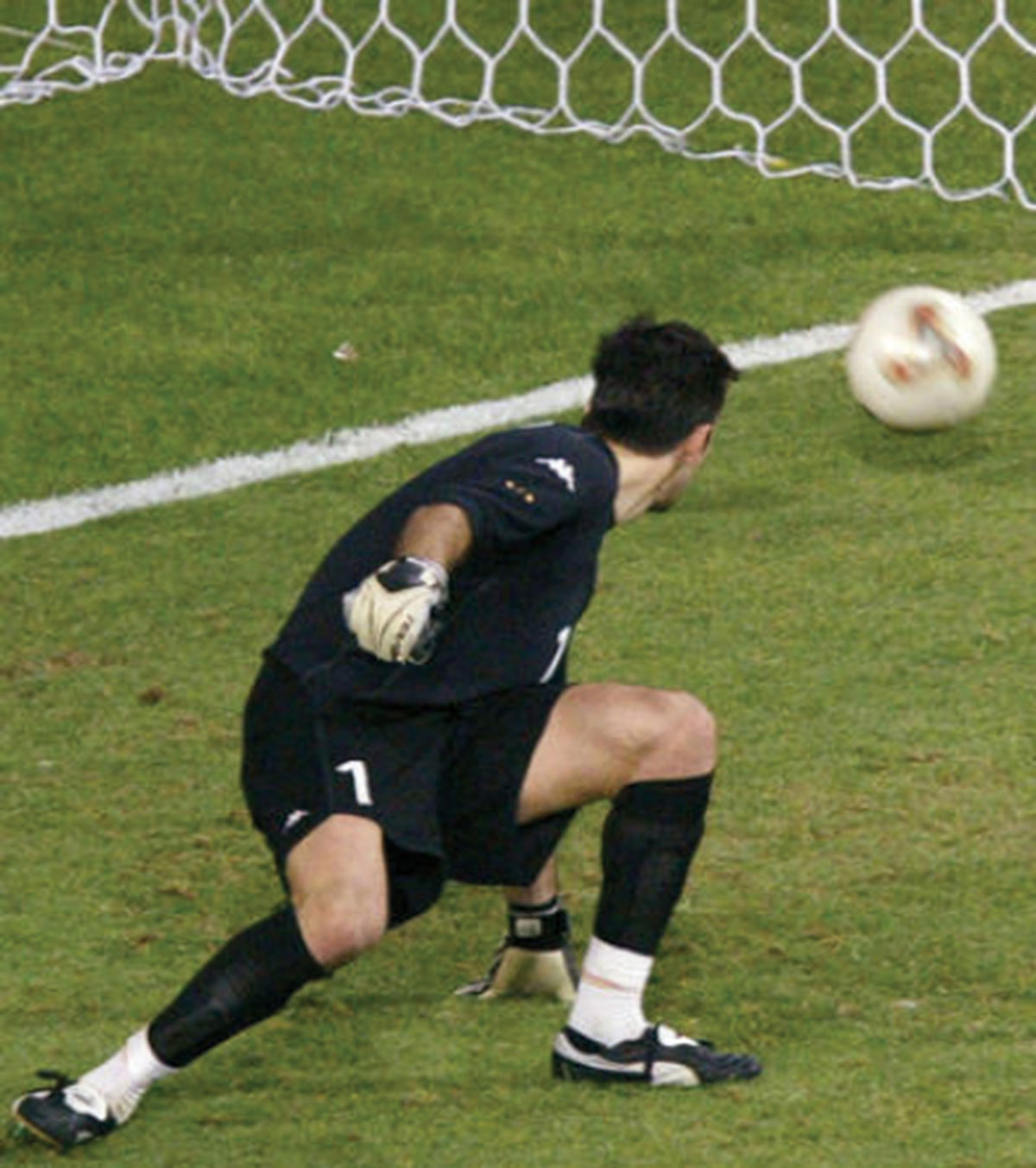
There is a common notion that football players are stupid and ignorant, and that they merely know how to move their legs. What do you think about that?
For me, intelligence isn’t about knowledge, but is rather an activity related to humor, pleasure, and curiosity. I take an aesthetic pleasure in an idea; I love its form and shape, rather than its tendency to harden into a series of irrefutable facts. Maybe I am talking about an invisible kind of intelligence that doesn’t need to be written. It relates more to a conversation between friends or with the things that cross my mind when I am traveling from one city to another. It’s about being awake, outside of common ideas about the world; an instant response, a joke, a trick, a flip of meaning that makes you laugh. There is a space opened behind my mind. Sometimes I think that interesting things are always behind senseless connections, they stay hidden there because people are too serious and they don’t play with notions of truth.
It is a very common mistake that we think we’re ignorant of something because we are unable to define it. You could say that we can move toward a definition of something only when we know nothing about it. Perhaps the human mind has a tendency to deny statements. Arguments convince nobody because they are presented as arguments. No one has ever won an argument and anyone who believes you can is living in a fantasy world. We look at them, we weigh them, we turn them over, and we decide against them. But when something is merely said or—better still—hinted at, and maybe that’s a trick too, there is a kind of hospitality in our imagination and we are ready to accept it. I think that games are one way to open this space in people’s imaginations.
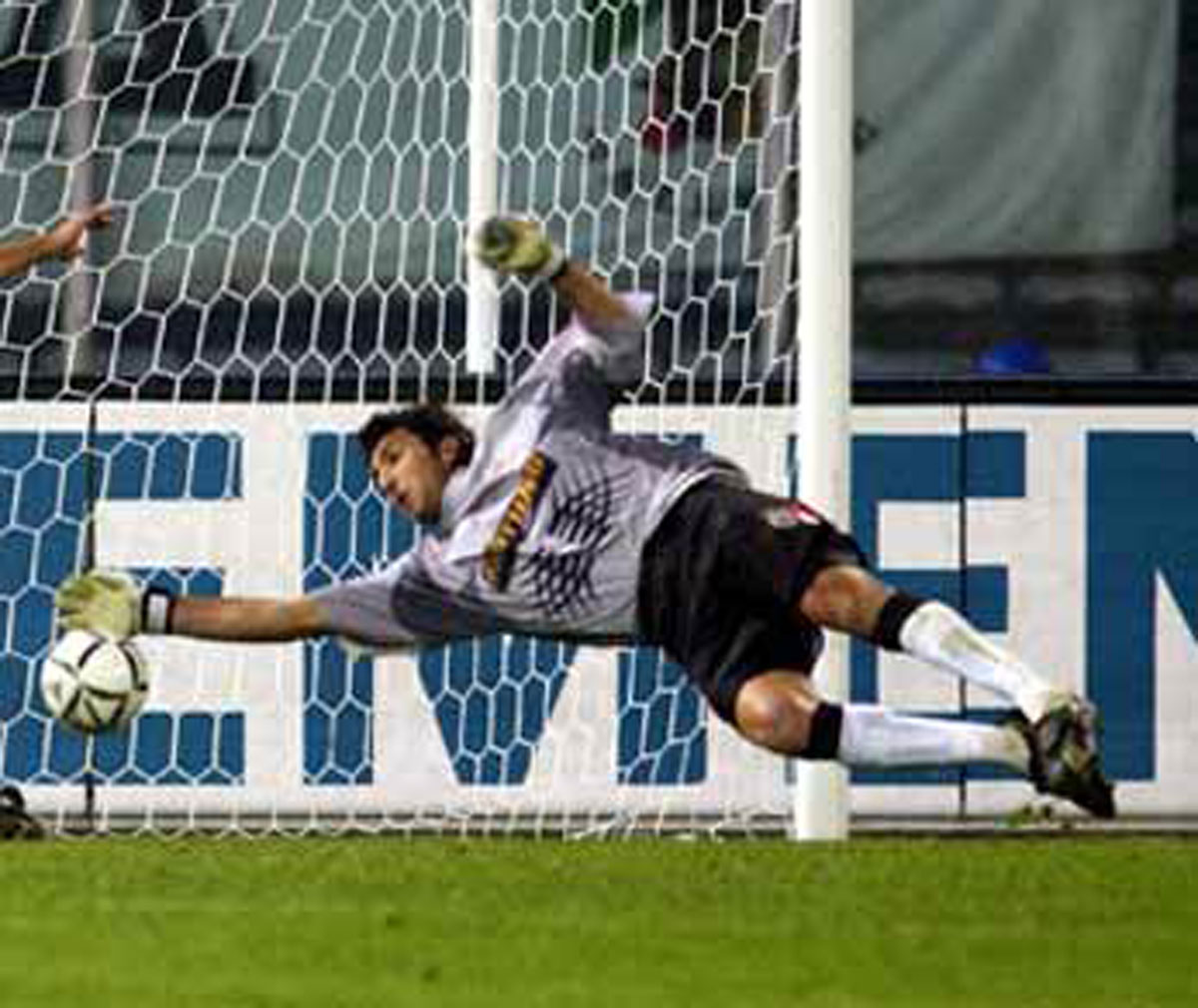
What is the role of chance in the game?
I think in general, games are about a tension between chance and rules, that’s what keeps the attention alive: the desire and the possibility of breaking the rules, of being lucky or of seeing something unexpected. Maybe in the case of football, this situation is more evident for the audience. Anyhow, every time I start playing I really don’t know what will happen, especially because my position as a goalkeeper is very much about observing, waiting, and then reacting at the right moment. No matter how much I practice, I am unable to control the whole situation and I really enjoy this uncertainty.
As an athlete, do you need to have strong discipline?
At the end of the day, when push comes to shove, I am a very lazy person. I like to think about everything at the same time but I have no patience to linger for too long on any single subject. I chose an activity where I need to make instant and fast decisions about complex situations. This was one of the main reasons for taking this shortcut, if we can call it that. As a goalie, my working hours are very short; I really need to put all my attention into what I’m doing.
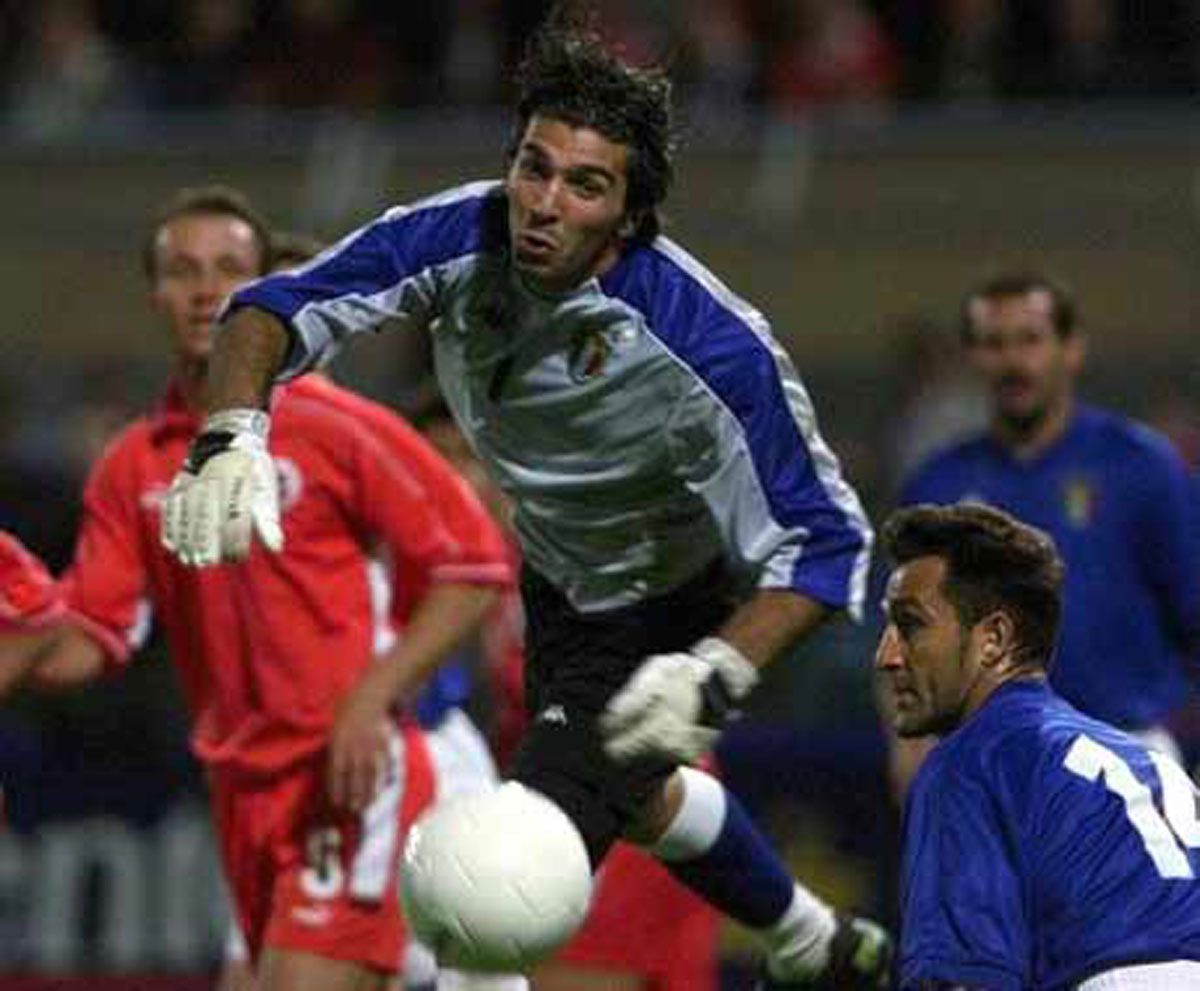
Is it true about the goalkeeper’s fear of the penalty kick?
I don’t think I have committed every possible mistake—because mistakes are innumerable—but many of them, and I really enjoy failure and that people keep talking about the mistake for weeks. Maybe it’s one of the few moments of the game when they can blame one person, and that’s me.
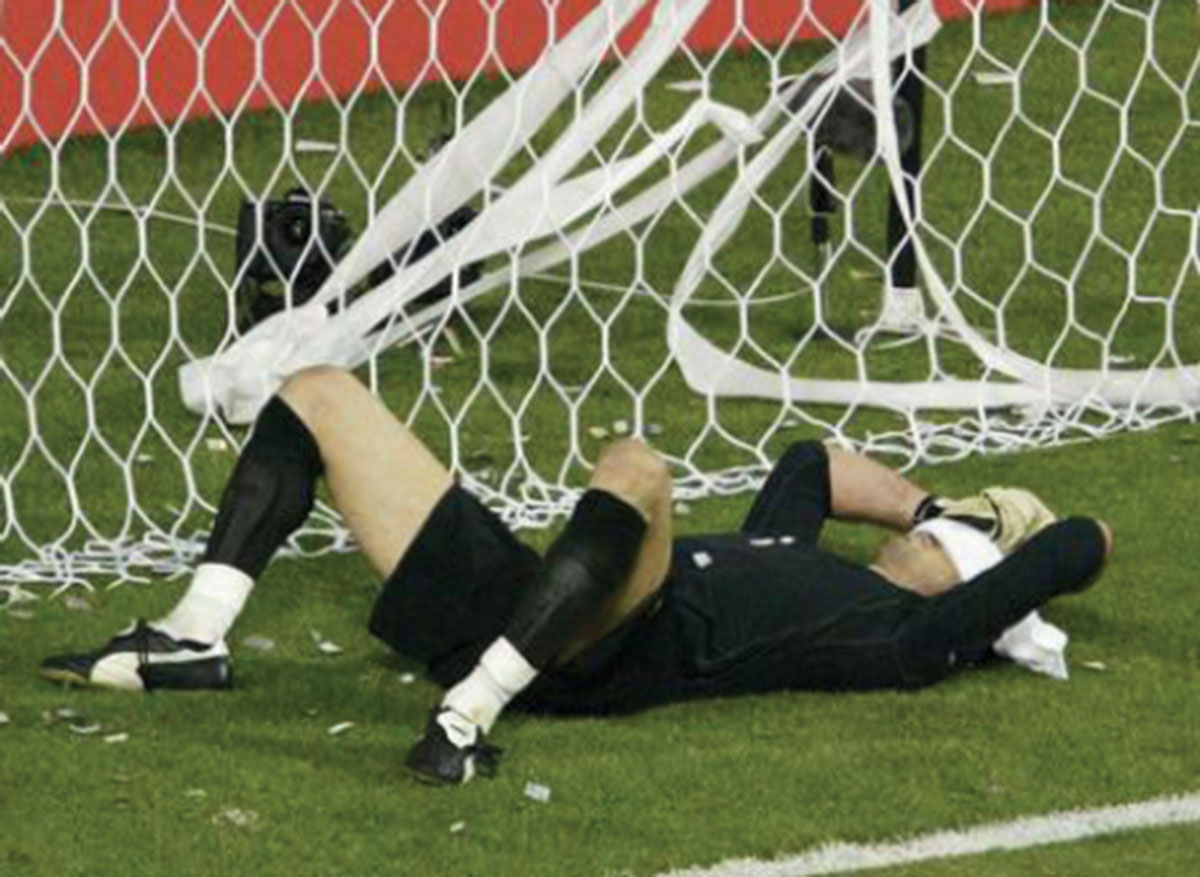
Gianluigi Buffon has spent most of his life between two sticks.
Mariana Castillo Deball is a Mexican artist based in Amsterdam and Berlin. Recent projects include Interlude: the reader’s traces, an intervention at the National Library in Paris, the Public Library in New York, and the National Library in Berlin; Institute of Chance at the International Institute of Social Studies, Amsterdam; and Never Odd or Even. In 2004, she was awarded the Dutch Prix de Rome by the Rijksakademie.
Spotted an error? Email us at corrections at cabinetmagazine dot org.
If you’ve enjoyed the free articles that we offer on our site, please consider subscribing to our nonprofit magazine. You get twelve online issues and unlimited access to all our archives.